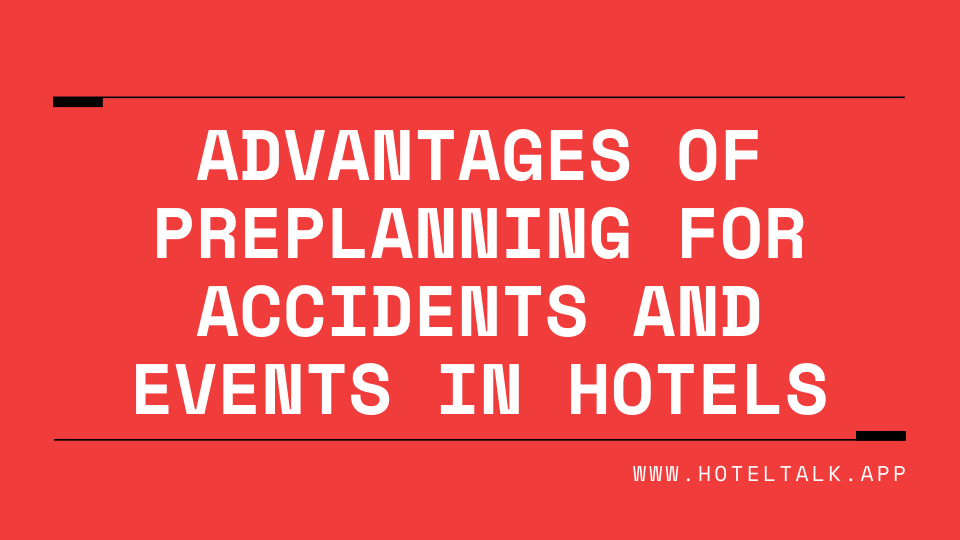By planning ahead of time for certain types of accidents and events, you will be able to reduce the possibility of injury or loss, demonstrate reasonable care, and demonstrate to a jury that you were able to anticipate a potentially dangerous situation and took appropriate steps to prevent or mitigate the consequences. (Recall the significance of “predictability” in personal injury lawsuits.) There are additional benefits to planning ahead of time how your operation can be made safer and what types of actions you and your employees can take on a daily basis to keep it safe. Among these benefits are:
Improved employee morale.
When employees see you implementing safety and security programs, they know that there is a direct benefit to them. In an age of increasing workplace violence, employees have a legitimate concern for their own security.
Improved management image.
Often, managers are accused, directly or indirectly, of putting the needs of the business ahead of those of the individual worker. Regardless of the legitimacy
of such criticism, the implementation of safety and security programs demonstrates management ’ s concern for staff and guests in a way that is both visible and undeniable.
Improved employee recruiting effectiveness.
For prospective employees, the mention of effective safety and security programs can often mean the difference between accepting or rejecting a position.
Consider the parents of a teenage worker helping to counsel their son or daughter to look for an after – school job. Having a safety – oriented workplace
will clearly be important in the decision – making process of the potential employee and his or her parents.
Reduced insurance rates.
In many cases, your insurance company will reward your safety and security efforts with reduced insurance premiums. It simply makes sense for them to
do so. Just as auto insurance companies provide lower rates for safe drivers, business insurers look at the potential for loss when establishing rates for
providing coverage.
Reduced employee costs.
Employees who avoid injury are more productive and reliable than those who do not. Because that is true, it is up to you as a manager to help employees
avert accidents. Workers ’ compensation claims are lower in a safe work environment, and lost productivity due to injury – related absence is reduced. No one wins when workers are injured on the job.
Improved operating ratios.
When theft by guests or employees is reduced, profitability increases. Restaurants and hotels particularly have inventory items that many employees and guests find desirable, because they can be used or consumed in their own homes. Well – conceived programs that reduce theft or raise awareness
about security measures result in lower operating costs, and thus enhance gross operating profits.
Reduced penalty costs for violations.
Hospitality establishments are visited by federal and state inspectors from a variety of agencies to ensure compliance with the different laws that regulate the industry. Often the inspections are unannounced, and the fines for violating the law, as we have shown you, can be severe. The best way to avoid expensive fines and penalties is by operating safely and legally at all times. An effective safety and security program can help ensure your compliance with the law.
Support in the event of an accident.
When an accident occurs, attorneys and upper management will look to the hospitality manager to provide documented proof that safety and training programmes were put in place to reduce the likelihood of a mishap. As previously stated, juries will be interested in whether or not the manager exercised reasonable care in the operation of his or her facility. If the manager is unable to do so, the operation’s chances of being successfully defended in court are greatly reduced.
Increased guest satisfaction.
The travelling public of today is sophisticated. Guests have come to expect that hospitality managers who care about their repeat business will protect their personal safety and the safety of their belongings to the greatest extent possible. A hotel that fails to provide adequate locks on its guestrooms, for example, does so at its peril. Potential guests will simply seek out other, more secure lodging options. The restaurant that fails to protect its inventory from employee theft and then runs out of a critical ingredient on a busy Saturday night faces the same risk of customer dissatisfaction. Customers who are dissatisfied rarely return.
Marketing advantages.
All hospitality establishments compete for customers or resources, including those in the nonprofit sector. When an operation can legitimately represent itself as taking a genuine and documented proactive stance in the area of safety and security, marketing that facility to the general public becomes easier. For example, when choosing a hotel for a tour group’s overnight accommodations, the tour bus operator will, all else being equal, choose the hotel that poses the least risk to the group’s safety, and thus the least likelihood of negative guest experiences. This is simply good business sense on the part of the tour operator.
Reduced likelihood of negative press.
Few events can be as damaging to a company’s success as sustained negative press. While such publicity is often undeserved, the reality is that today’s media will sensationalise some misfortunes in ways that cast the business owner in the worst light. As we will see later in this thread, your ability to deal honestly with the media during a crisis is critical, but it is always easier to avoid accidents than it is to defend yourself in the press. Many executives believe that “it can’t happen to me.” It can, and the consequences can be disastrous for your company.
